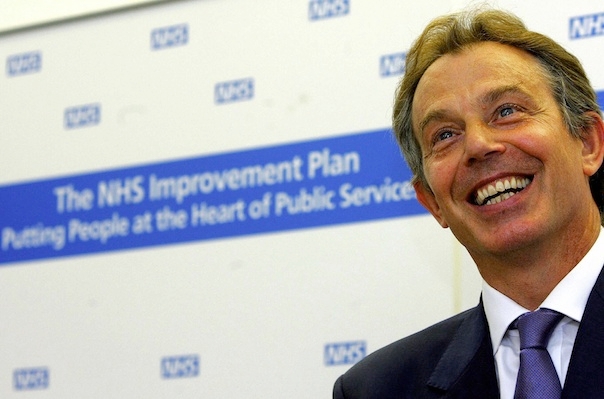There is nothing as dangerous, they say, as the zeal of the newly converted. So it was when Labour under Tony Blair suddenly discovered capitalism. What had been a small-scale pragmatic policy under John Major’s government, the Private Finance Initiative (PFI), was taken up with huge gusto in order to see the rebuilding of hundreds of schools and hospitals. Gordon Brown loved it too, because, although less wedded to private enterprise, he spotted a way of fiddling his borrowing figures: by shifting billions of pounds of new investment off the government’s books.
We ended up with a deficit of £160 billion anyway. But on top of that, the real cost of PFI is becoming ever more apparent. This week the government had to take over South London Healthcare, an NHS trust, before it succumbed to the annual payments it must fork out to the consortia which rebuilt its three hospitals. Now it transpires that 22 more trusts may similarly be in danger. Astonishingly, considering its budget has more than trebled since 1997, the NHS is facing bankruptcy bit by bit.
Considering that one of the arguments for PFI was supposed to be that it transferred risk from the taxpayer to private investors, it has all become a bit of a sick joke. Unless NHS trusts can find a way of wriggling out of their contracts they face having to shell out an eventual £70 billion to PFI companies — all for £11.4 billion worth of hospitals, many of which may become obsolete well before their 30-year PFI contracts expire. Had the government simply built the hospitals with borrowed money it would, as with its other debts, be paying 2 per cent interest.
PFI was not capitalism in any pure sense, but a strange hybrid in which risk remains with the taxpayer. Can you imagine the government allowing a hospital to go bankrupt, with the receivers sent in to flog off every last scanner and stethoscope? Exactly. That is why PFI companies figured out they really couldn’t lose. There was no way that their tenant was going to default on the repayments.
But combined with that was the folly of allowing civil servants and quangocrats with no background in business to negotiate complex contracts with executives of private companies who were steeped in the art. PFI deals failed to make allowance for the possibility that schools and hospitals might want to make alterations to their buildings, allowing PFI companies to demand huge sums for making simple changes. Schools found themselves unable to hold after-school clubs unless they made extra payments.
Many private businesses use facilities management companies to maintain their buildings, but they sign a contract for three years — not 30 years, as is the case with many PFI contracts. By the end of its time in office Labour was actively pursuing a policy of fewer beds in acute hospitals and more care at home — yet thanks to PFI the taxpayer is obliged to pay for the hospitals whether needed or not.
When PFI companies feel their contracts are not working in their favour, they ask to renegotiate, at which point NHS trusts meekly give in: most notably in the case of the Norfolk and Norwich, which allowed the consortium to refinance the project so that investors received swifter returns, but the trust was exposed to greater liabilities. Yet now that NHS trusts are groaning under the strain of their contractual obligations, are they managing to renegotiate their contracts? You bet they aren’t.
We have ended up being ripped off because, although Tony Blair was swept up by the idea of private enterprise, his party would never have allowed him to go the full way. We got a fudged compromise because the unions would never have allowed wholly privately owned hospitals to be part of the NHS; Blair could tolerate jibes of ‘privatisation by the back door’, but he could never have withstood charges of privatisation by the front door.
But if the taxpayer is going to benefit from private enterprise in healthcare, that is what we need: hospitals entirely owned by the private investors which — and this is the crucial bit — are allowed to go bust if they get into a financial mess. The NHS would need to be reconfigured as a buyer of services, free to choose where to place its business, and to be able to switch between suppliers. The NHS would have to be in the position of fussy consumer, to whom private hospital-owners have to sell their services at the best price.
Given that Blair wasn’t prepared to go the full distance on introducing capitalism into the NHS, how much better it would have been had he not bothered at all — and left a genuine reforming government to make the running.







Comments